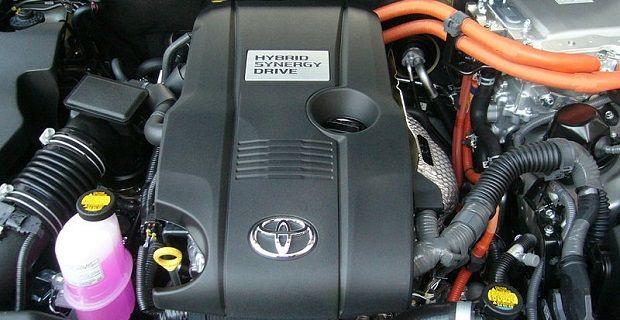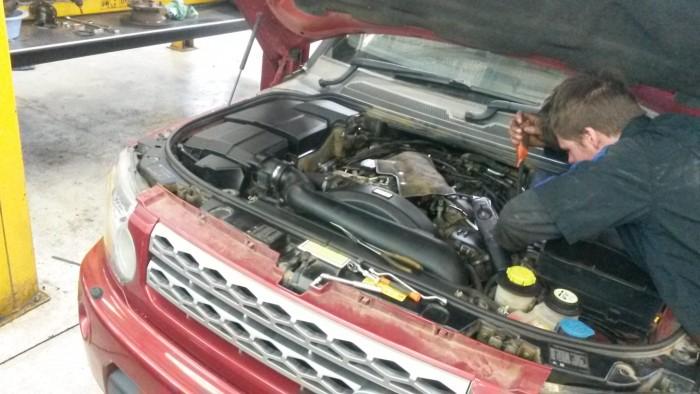In any vehicle, the engine is called the heart. So, what could be more disastrous than seeing this core part of your car being plagued by common engine problems? So, you need to take proper care of your car to make sure the engine is in good condition. Engine failures may cause your car to stop for good. As long as it is maintained well, you don’t need to be tensed. You may postpone any scheduled maintenance thinking what worse could happen. But, in the long run, the problem may take a severe condition and cost you a fortune.
Contents
Common Engine Problems In Cars
It is important to pick up the symptoms of a problematic engine and engine problem diagnosis by expert mechanics before the car suddenly stops functioning. Take a look at some of the most common engine problems:
1. The engine won’t start
It’s the most common engine-related problem that car owners face frequently. If the problem is with the battery, the engine will make a clicking sound but won’t crank. On the other hand, a car with fuel or ignition problems will crank but won’t start. Some of the reasons for which an engine won’t start are a discharged battery, corroded battery cables, faulty fuel pump, blocked fuel filter, ignition switch breakdown, and failure of starter motor relay.

2. Overheating
A low coolant level is a culprit for the overheating problem. A burnt-out radiator, clogged hoses, broken engine thermostat, loose or broken plugs, a leaking coolant system, blown or cracked head gasket can cause overheating problems. Repeated overheating can cause severe engine damage.
3. Stalling
Stalling a car while driving is related to engine problems. A car that suddenly stops in the middle of the road is a major safety hazard. In fact, minor hesitation can cause accidents if it’s a busy street or a tricky, rocky road.
Problems in the fuel line, fuel filter, and spark plugs might be the reasons for stalling and hesitations. However, they may not always be related to the engine, but you should have it examined by a professional mechanic.
4. Smoke or steam
A smoking engine is never good news. You should immediately take your car to an auto repair shop if such a problem arises. The problem can happen because of worn gaskets, bad cylinders, damaged rings, poor crankcase, and using the wrong oil grade.

5. Noises
Sometimes, engine problems give you warnings through noise. If you notice any weird or unique sound along with knocking or vibrations, you should pay attention. Such noises and vibrations can indicate a weak starter, worn-out timing belt, or other serious engine problems.
6. Oil issue
Neglecting the importance of regular oil changes is responsible for one of the most common engine problems. When you don’t change the oil as necessary, your engine gradually starts losing its efficiency and at one point, then stops working.
To keep your engine running smoothly, you must pick the right sort of oil. You may consider using synthetic oil to get the best out of your engine. And, this is also recommended by many leading car manufacturers at present. Synthetic oil costs only a few bucks more than your regular oil. You may not want to see your engine failing out in the middle of nowhere, for only a few dollars. Right? Moreover, read our maintenance tips from our experts in order to get more information about oil issues, which could help you easily troubleshoot this problem.
7. Lack of coolant
The next in the series of frequent car engine problems is a problem with the cooling system. The standard practice is flushing the engine coolant every 30,000 miles or 3 years. A complete flush should not cost you more than $100-$150.
This is nothing in comparison to the costs of upgrades or replacements of spare parts. Generally, vehicle owners tend to decide on coolant flush until they have been prescribed to do so by a maintenance service provider. As a result, the parts where the coolant is used degrade before their normal lifespan.
A simple engine troubleshooting is keeping an eye out for an overheating engine. A low coolant level is a culprit for the overheating problem. A burnt-out radiator, clogged hoses, broken engine thermostat, loose or broken plugs, a leaking coolant system, blown or cracked head gasket can cause overheating problems. If you still keep driving the car, there is a chance that your engine will be permanently damaged.
Some other internal engine problems responsible for overheating are: malfunctioning cooling fans or a clogged cooling system. If you have the engine mended right away, more rigorous and expensive methods like replacing or rebuilding the engine will not be necessary.
8. Water in the engine
Driving your car through high waters or heavy rainstorms can damage the engine badly. If water enters the engine, it may bend the piston rods, leaving your engine in shattered conditions. Often the water can reach the combustion chamber by passing through the intake manifold. Remember, this is where the spark plug is located. So, as soon as water passes through you can face engine problems caused by one of the above or all of them.
9. Smoke or steam
A smoking engine is never good news, no matter what color smoke you see. You should immediately take your car to an auto repair shop if such a problem arises. The problem can happen because of worn gaskets, bad cylinders, damaged rings, poor crankcase, and using the wrong oil grade. For that reason, always paying attention to your engine is highly recommended. However, most cars from Japanese brands like Honda, Suzuki, Toyota, Mitsubishi,… are produced with good engines and high-quality accessories to avoid white smoke.
10. Abnormally loud
Sometimes, engine problems give you warnings through noise. If you notice any weird or unique sound along with knocking or vibrations, you should pay attention. Such noises and vibrations can indicate a weak starter, worn-out timing belt, or other serious engine problems. In this case, you should probably take your car to a mechanic who will help you determine exactly the reason behind it.
To more understand, let’s watch the video:
https://www.youtube.com/watch?v=QnjWGNZUQBE
Your car is nothing but a useless heap of metal without a working engine. So, don’t ignore if any of these common engine problems occur at any time. Besides, take the car to the repair shop for regular diagnosis so that it gives you service for a long time.




Am so grateful for this info, I actually have learned and do continue to learn a lot from this forum. How I wish I could continuously keep in touch with you bse I use a landcruiser Prado GX type.
We are happy to receive your comments. Please share with your friends so they can enjoy this article, too.
Its a very educative information.
Thank you. We will provide more useful information like this. Stay tuned
Thanks a lot for the platform. I have a toyota altezza which when i engage a gear be it reverse or forward it does not have power until i let it idle for 5 or so minutes to geat up. what could be the possible causes
During accelerayion on humps,my car doesn’t restart easily. Meaning,it doesn’t start in gear 1, What might be the cause?
During accelerayion on humps,my car doesn’t restart easily. Meaning,it doesn’t start in gear 1, What might be the cause? I’m using Nadia
It was truly helpful that I saw this article and learned that the car needs to be taken to the mechanic immediately if the engine ever starts smoking. The car started smoking a little while ago while I was driving to the supermarket, and I thought it was weird. Though it is not big, and I think that I can still survive the day with it, but I will not take any chances. Thank you for sharing this.
This article is very interesting. I find the engine of a car extremely fascinating and have gone over the machinations of vehicles for a large portion of my life.
I just want to ask some regarding ticking sounds on my bonnet after I turn off the car. Its that normal because its cooling the engine? Or thiers a problem with the engine?
Thats normal
Uuugh! Nice one.
Great Information. Keep the good work up.